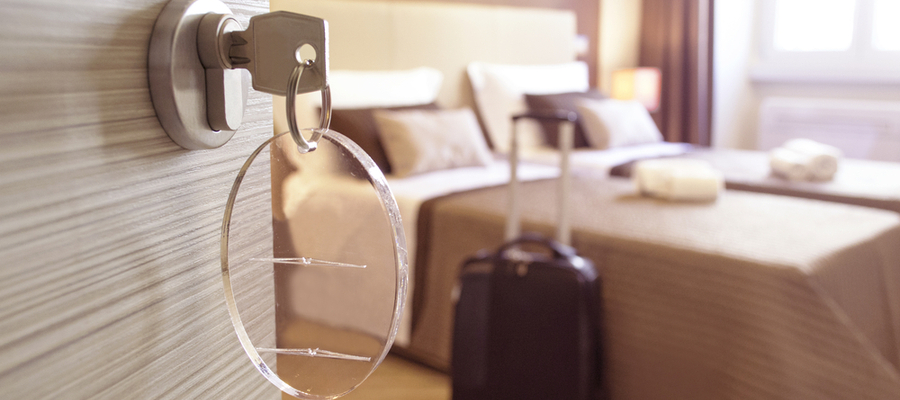With Online Travel Agencies (OTAs) providing attractive discounts to travellers, hotels have the challenge of retaining their best guests and ensuring that one-time visitors become loyal repeat customers. Consider the fact that it typically costs a business 5 to 10 times more to capture a new customer than it does to sell to an existing one. As repeat customers spend an average of 67% more than new customers, it is in a hotels’ best interest to develop sophisticated loyalty programs that bring guests back to their properties. A loyalty program is a way to reward your returning guests so that you can spend less time and money chasing after new ones and more time developing mutually-beneficial relationships with the ones you already have. In turn, your loyal guests will be more likely to spread the word about your property and help you drive occupancy. Let’s explore some examples of great programs and best practices for creating or improving yours.
Create a Simple Point System
In 1981, American Airlines launched the first frequent flyer program, using “miles” as the unit of loyalty guests earned (with guests earning a mile for each mile flown). Nearly every airline followed suit. Many airlines, however, have since moved away from the miles model making rewards entirely revenue based. The equivalent to the American Airlines miles point system might be to offer guests free nights after a certain number of stays. Giving away nights for free is less beneficial to your bottom line than developing a point system where guests still have to spend some money. A revenue-based point system, by contrast, may encourage guests to book at your hotel whether or not they have earned a full night’s worth of rewards, and also encourages them to spend more money on-site on other amenities in order to receive additional points.
Consider a Tiered Program
Hyatt runs the loyalty program World of Hyatt, in which members can work their way up from a Discoverist to a Lifetime Globalist, by earning points based on dollars spent. Guests in programs like these are incentivized to spend more in order to move up the tiers. By letting these customers know where they stand in comparison to other guests, Hyatt capitalizes on feelings of exclusivity. Many people take pride in the frequency of their travel and appreciate a clear-cut metric for seeing their loyalty rewarded making recognition and status powerful rewards formats.
Offer Non-Monetary Benefits
Non-monetary perks can be a cost-effective system to improve guest stays and encourage repeat visits. Omni Hotels offer free WiFi for members of their program—a smart move, considering that over 70% of travellers state that access to free WiFi influences their hotel choice. A room upgrade can often be offered at no additional cost on nights of lighter occupancy. The power of a hand-written note to a frequent guest is also an inexpensive way to show your appreciation. As guests respond well to immediate rewards, your loyalty program should not rely solely on a point-based system: you should consider offering little perks to your loyal guests along the way.
Integrate with Adjacent Services
Consider partnering with providers of services that travellers are interested in, like car rentals and tourist attractions. You might be able to negotiate kickbacks with these providers while providing extra benefits to your loyal customers. Integrating with other international hotel brands can also allow your guests to stay loyal even when they are traveling to locations where you might not have a property. For example, the Fairmont Hotel’s President Club allows guests to earn points when they travel internationally to Swissôtel or Raffles properties. In turn, this will drive guests from those properties to your hotel, thus increasing your reach and influence.
Customize Loyalty Offers Based on Guest History
A key part of running a successful loyalty program is knowing how and when to customize offers to guests. A successful loyalty program will use an innovative PMS system to personalize its loyalty offerings based on guests’ specific preferences. Your hotel’s PMS should store guest information in one centralized place regardless of whether they booked through your online booking engine or a third-party site. Having this information on hand allows you to give guests exactly what they want as a reward—whether that’s a free pass to the hotel’s gym for a guest who has used your amenities before, or a room upgrade on their wedding anniversary. Storing as much information as possible about your guests will allow you to give them what they really want, and help them to build a strong relationship with your property.
Working hard to gain and retain your guests’ loyalty is a worthy investment of both time and money. Designing the right program for your hotel can result in better knowledge about guest preferences, higher customer retention, greater guest satisfaction and a stronger reputation. By investing in your loyal customers, you can ensure that your A-list, revenue-generating guests return to your property for years to come.
Learn more about how an innovative PMS can help you manage a sophisticated loyalty program for your hotel properties.





